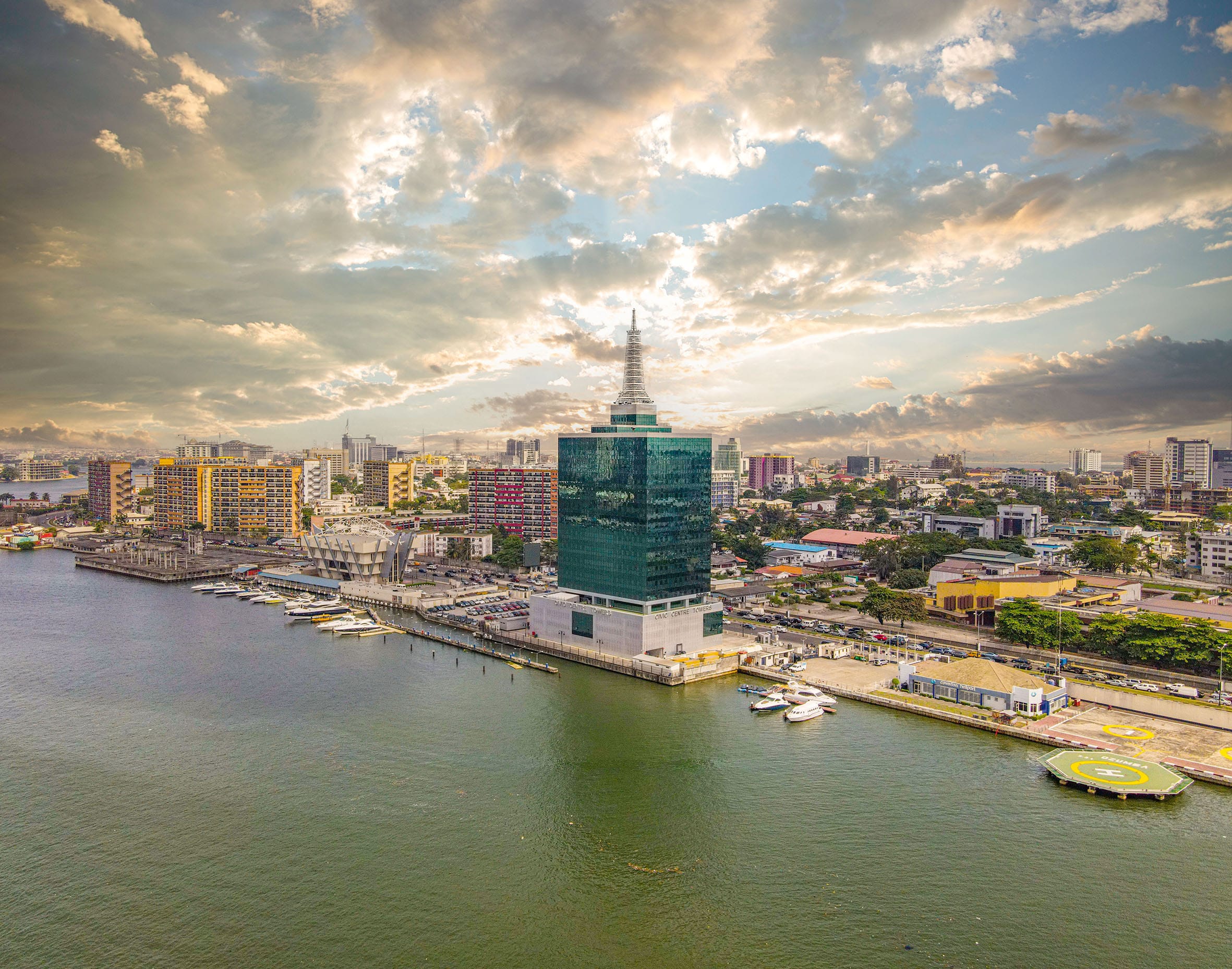“I seek a nation founded on justice, peace, prosperity for all, regardless of religion, region, ethnicity, and class,” H.E. Bola Ahmed Tinubu, President of Nigeria.
A country with over 200 million people, Nigeria boasts a large consumer market and a thriving startup ecosystem. The West African nation has witnessed a consistent rise in the number of its startups from 2019 to 2023, with over 3,360 startups entering the market in 2022. With funds from local and foreign investors, the startups generated US$565 million in 2023, a 216% increase from the value generated in 2019.
Nigeria is making developmental progress on multiple fronts, including infrastructure. Its largest city, Lagos, launched a new electric-powered 13-kilometer-long metro rail service in September 2023. The metro’s blue and red rail lines are expected to ease traffic congestion in Nigeria’s economic hub. The blue line connects Lagos city with Lagos Island, the central hub for most businesses, while cutting-down the two-hour travel time to only 15 minutes.
“We want to make Lagos an African model mega city that is safe, secure, and resilient. We want it to be a pride of Africa. We will ensure that Lagos embodies everything that a mega city, anywhere in the world could be,” says Governor of Lagos state, Babajide Olusola Sanwo-Olu.
Infrastructure is one of the sectors attracting foreign investment as well as manufacturing, oil and gas, and agriculture. After assuming power in May 2023, Nigeria’s President, Bola Ahmed Tinubu has introduced reforms to enhance the nation’s economic growth by removing a decades-long fuel subsidy and boosting tax revenue. Nigeria is expected to benefit from the current global surge in oil prices, given its status as one of the largest oil-producing nations in Africa.
Loading...
“The president is trying to create an environment where Nigeria is considered a top investment destination. The oil sector has enormous potential. It has been successful over the years but I think there’s a lot of unlocked potential. It’s a dollar-denominated sector and the export of oil is a significant source of foreign exchange coming into the country,” says Roger Brown, CEO of Seplat.
According to the World Bank, the reforms being undertaken in Nigeria will propel the nation’s growth to an average of 3.4% between 2023 and 2025. The International Monetary Fund has also projected accelerated economic growth in the West African nation, as the country witnesses positive progress in different sectors including service and agriculture.
“If you look at the FAO data, Nigeria is about the 10th or 11th biggest producer of corn in the world. There are about 13 to 14 million metric tons of corn being produced in the country. I am very happy to see the ambition that the country has set to have a one trillion economy in the next seven to eight years, 50 million jobs focusing on agriculture, revamping monetary and fiscal policy, and pulling 100 million people out of poverty. That’ll make Nigeria become a big non-oil exporter and with a good chunk of GDP coming from agriculture,” says Muyiwa Gbadegesin Country Head and Managing Director of Olam Agri.
As President Tinubu pledged during his campaign, Nigeria anticipates a future of renewed hope. The country is focusing on promoting investment as a means to create jobs. The president has introduced different measures, such as liberalizing the exchange rate to address hard currency-related challenges in promoting trade and investment.
“If this economy is going to grow at the level of GDP that the president anticipates, the various sectors of the economy will have to grow. Financing must be provided largely by the banking sector to fuel the growth. When that happens, if you invest in any segment of the financial service sector, then you are going to reap bountifully,” says Adesola Adeduntan, CEO of First Bank.
Nigeria’s National Development Plan has set an ambitious goal to achieve private sector-led economic growth, which will generate 21 million jobs and lift 35 million people out of poverty by 2025. The World Bank projects that if the current reforms continue, Nigeria will be able to improve its business environment and create robust economic growth.
Loading...

